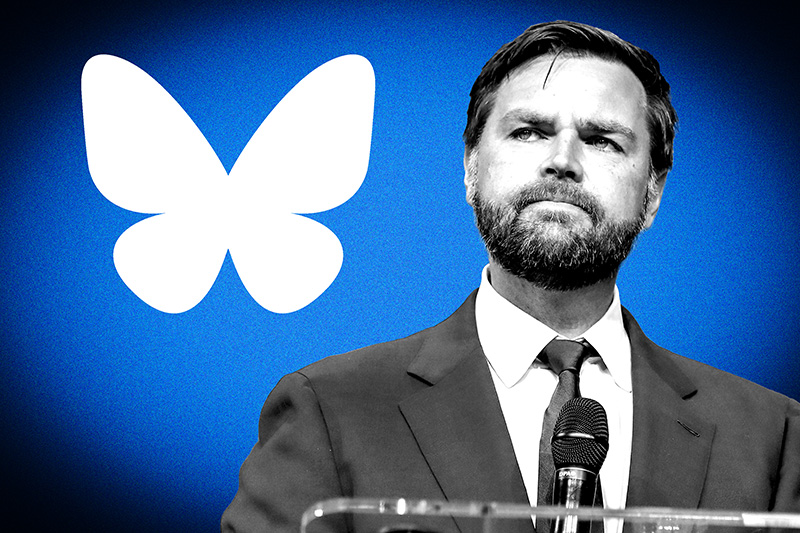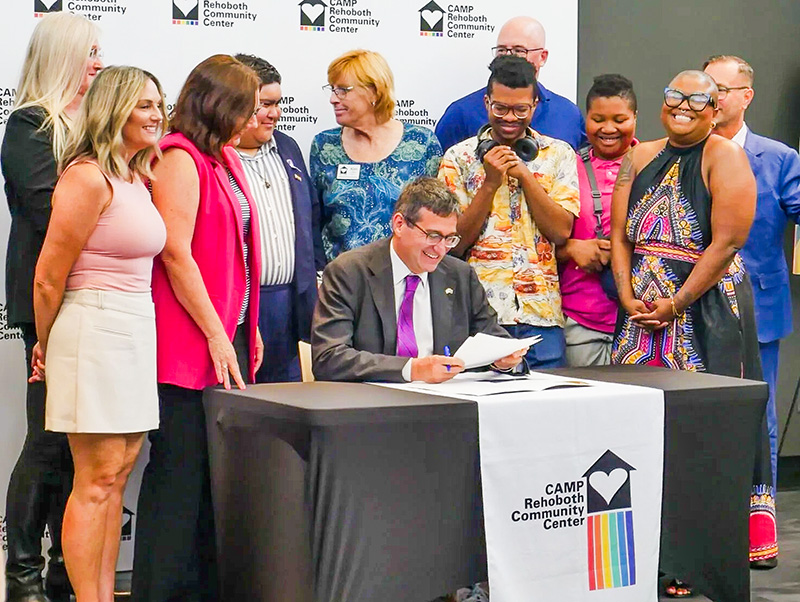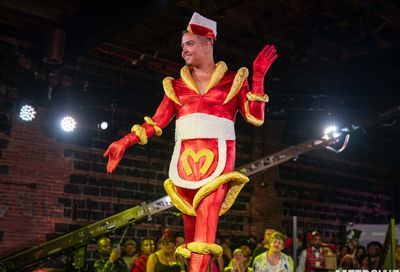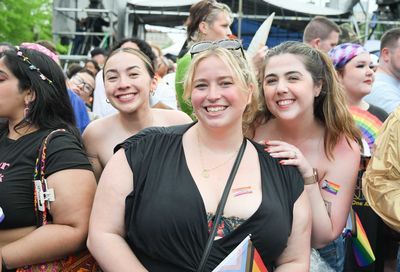Hundreds March in Support of Trans Rights
Activists issue demands in call to "fix society" after suicide of Ohio transgender teen Leelah Alcorn

Hundreds of people rallied at Mount Vernon Square in downtown Washington on Saturday, Jan. 10 to call for action to guarantee equal treatment and civil rights for transgender and gender non-conforming people in memory of Leelah Alcorn, a 17-year-old transgender teen from Ohio who committed suicide by car accident after her family rejected her gender identity, isolated her from friends and schoolmates, tried to limit her access to social media, and sent her to Christian therapists who advocated conversion or “reparative” therapy when she requested that they allow her to undergo medical treatments for gender dysphoria. Driven to desperation and feeling alone, Alcorn left behind a suicide note on her Tumblr account in which she begged people to “fix society” by educating people about gender and to be more accepting of transgender people.

“Denying transgender people medical treatment is an act of violence. Denying transgender people housing is an act of violence. Denying transgender people the opportunity to raise a family or get a job is an act of violence,” Lourdes Ashley Hunter, the co-founder and national director of the Trans Women of Color Collective, said in an impassioned speech. Hunter went on to speak of the need to end structural violence that prevents transgender people from enjoying equal opportunities as cisgender people. She also invoked the names of several notable deceased D.C. transgender women, most of whom were violently killed in suspected hate crimes.
“The average age of a transgender woman of color is 35,” Hunter continued. “I am a 38-year-old trans woman of color, and that means I am on borrowed time.” Hunter urged the crowd to take a lesson away from Alcorn’s death, that they must fight to “fix society,”, as Alcorn requested in her suicide note, to make transgender people’s lives easier by guaranteeing them respect and equal treatment under the law.
The rally also featured other transgender speakers, most notably Karen Topham, who spoke of her own experience as coming out as a transgender woman in a conservative community in suburban Chicago and as the parent of a transgender son.
Following the speeches at Mount Vernon Square, those assembled began a trek through the city’s Chinatown neighborhood down to the headquarters of the U.S. Department of Justice, led by a banner calling to “Fix Society.” March leaders led the procession through the city streets, chanting, “Trans rights are human rights!” and “Protect Trans Kids!” Along the way, the crowd stopped in front of the headquarters of the Family Research Council (FRC), a conservative lobbying and policy organization that opposes the normalization of homosexuality and the expansion of LGBT rights. There, activists set up a makeshift memorial with small plastic candles and a picture of Alcorn as the crowd held a moment of silence in honor of the deceased teenager. Leaders of the rally and the march, speaking through a bullhorn, accused the FRC of having “blood on its hands” for its support of the type of conversion therapy to which Alcorn’s parents had tried to subject her.

Once the marchers arrived at the Department of Justice, they read aloud a list of their demands. Those demands included: calling for a national ban on conversion therapy; that transgender denial by parents be treated as child abuse; that transgender people be afforded easier access to medical treatments for transitioning, including making treatments cheap, covered by insurance and accessible to minors; and statements, issued by Alcorn’s church and religious leadership condemning conversion therapy.
Jes Grobman, an American University student and one of the lead organizers of the action, said the rally and march seemed to be successful in bringing out people to the event and spreading awareness of the issues facing transgender and gender non-conforming people in society. Grobman also said the march was a great opportunity to expose other people who aren’t intimately involved or knowledgeable about the trans community to issues that have largely been ignored by mainstream society.
“The important thing is to bring people together,” Grobman said of the movement’s eventual goals of building up networks of transgender people across the nation and allies to fight for changes in policies. “This is not just an action, this is a community building exercise. …When you create these communities and create this infrastructure that can get together and fight, both inside and outside the government, to get these issues accomplished, that’s the best way to go about it.”
Lex Matthews, a student from College Park, Md., said he attended the rally because he was moved by Alcorn’s struggle for acceptance — which spoke to him personally — and wanted to help make transgender people’s lives better.
“I think the goals [of this movement] are definitely long-term,” Matthews said. “Some of them are definitely in the works. Some states have lifted the ban on transgender care for their Medicaid program, but private insurance companies may be a little harder. Some are doable, some are more longer-term than others. …I think it just takes time, and people’s attitudes changing. Homosexuality used to be considered a psychiatric disorder, and we got over that. So, hopefully, with time, people will realize the same thing.”
In addressing the crowd at the event’s close, Grobman said, urging people to remain involved with the movement and stay in contact via listservs and social media for future actions. “While this is the end of our agenda for today, this is not the end. …This is not a moment, this is a movement. We’re here for the long run. We may be going our separate ways back to our communities. …We’re saying this is the beginning, and we’re going to keep standing up, and we’re going to keep fighting until transgender people have the same rights that everyone else has.”
Support Metro Weekly’s Journalism
These are challenging times for news organizations. And yet it’s crucial we stay active and provide vital resources and information to both our local readers and the world. So won’t you please take a moment and consider supporting Metro Weekly with a membership? For as little as $5 a month, you can help ensure Metro Weekly magazine and MetroWeekly.com remain free, viable resources as we provide the best, most diverse, culturally-resonant LGBTQ coverage in both the D.C. region and around the world. Memberships come with exclusive perks and discounts, your own personal digital delivery of each week’s magazine (and an archive), access to our Member's Lounge when it launches this fall, and exclusive members-only items like Metro Weekly Membership Mugs and Tote Bags! Check out all our membership levels here and please join us today!





























You must be logged in to post a comment.